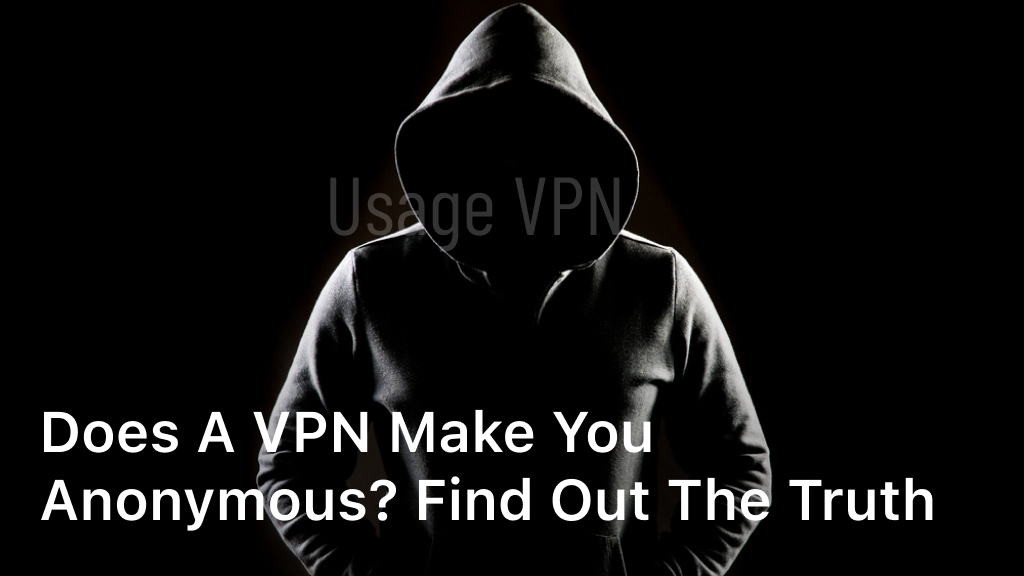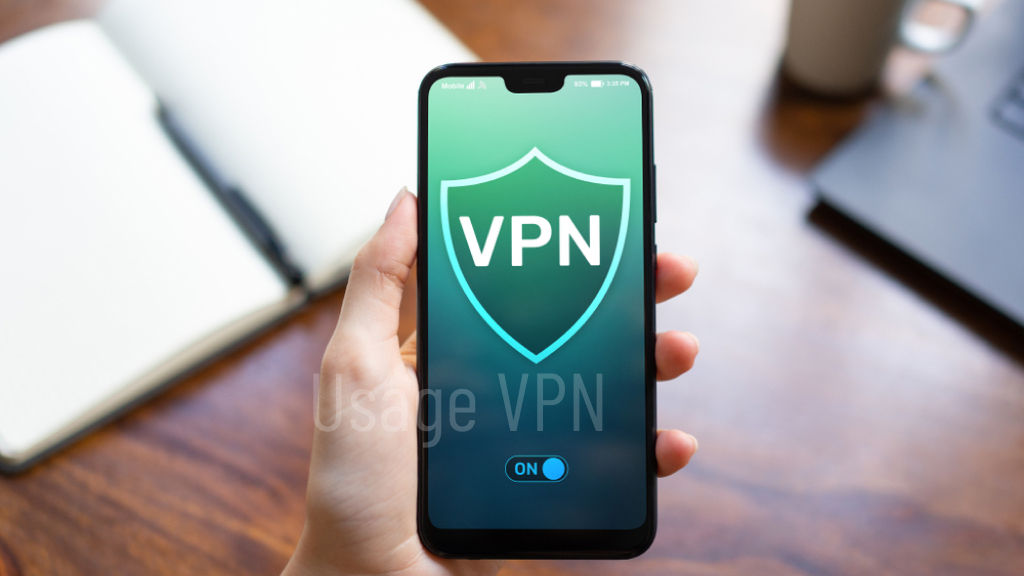Does a VPN Make You Anonymous? Find Out The Truth

Welcome to our guide on VPNs and online anonymity. With cybersecurity threats on the rise, it’s natural to wonder if a VPN can truly make you anonymous while browsing the internet. In this article, we will delve into the intricacies of VPN technology and explore its effectiveness in safeguarding your online privacy. So, let’s uncover the truth and separate fact from fiction.
Understanding VPNs and Online Privacy
When it comes to maintaining online privacy and staying anonymous online, Virtual Private Networks (VPNs) play a crucial role. VPNs provide a secure and encrypted connection between your device and the internet, creating a virtual tunnel that protects your data from prying eyes.
But how exactly do VPNs work? Essentially, when you connect to a VPN server, your internet traffic is routed through that server, masking your real IP address and location. This allows you to browse the web anonymously, as your online activities appear to originate from the VPN server instead of your own device.
Moreover, VPNs offer various security features to safeguard your online presence. They use advanced encryption protocols to ensure that your data remains protected, preventing hackers and other malicious entities from intercepting and accessing your sensitive information.
Role of VPNs in Maintaining Online Privacy
- Anonymity: By masking your IP address and location, VPNs provide a layer of anonymity that helps protect your identity online. This can be particularly beneficial when accessing geo-restricted content or evading government censorship in certain regions.
- Data Encryption: With strong encryption protocols, VPNs ensure that your data is secure while in transit. This is especially crucial when using public Wi-Fi networks, where your information is vulnerable to interception by cybercriminals.
- Internet Freedom: VPNs allow you to bypass restrictions and access content that may be blocked or censored in your location. Whether you want to stream your favorite shows or access social media platforms, a VPN can help you overcome these limitations.
- Protection from Surveillance: VPNs protect you against surveillance by Internet Service Providers (ISPs), governments, and other third parties. By encrypting your connection, VPNs prevent entities from tracking your online activities and collecting your personal data.
In summary, VPNs are an essential tool for individuals seeking to maintain their online privacy and stay anonymous on the internet. By understanding how VPNs work and utilizing their security features, you can enjoy a safer and more private online experience.
The Limitations of VPN Anonymity
While VPNs are an essential tool for safeguarding your online privacy, it is important to understand their limitations when it comes to achieving complete anonymity. There are several factors that can contribute to your digital footprint and potentially compromise your anonymity, even when using a VPN.
Data Retention Policies
One of the key limitations of VPN anonymity is the data retention policies of VPN service providers. Some VPN providers may keep logs of your online activities, including your IP address, timestamps, and websites visited. These logs can potentially be accessed by authorities or third parties, undermining your anonymity.
Device Fingerprinting
Another challenge to maintaining anonymity is device fingerprinting. Websites and online services can analyze various aspects of your device, such as browser settings, installed fonts, and screen resolution, to create a unique identifier for tracking purposes. This practice can still identify you, even if you are using a VPN.
Account Information
When using online services or creating accounts, you often provide personal information that can link your online activities to your real identity. This information can be used to deanonymize your online presence, regardless of whether you are using a VPN.
Best Practices for Staying Anonymous with a VPN
- Choose a VPN provider that has a strict no-logs policy to minimize the risk of your online activities being traced back to you.
- Regularly switch IP addresses and VPN servers to prevent tracking and create a higher level of anonymity.
- Consider using anonymous payment methods, such as cryptocurrency, when subscribing to a VPN service.
- Disable WebRTC in your browser to prevent IP leaks that could expose your real IP address.
- Use additional privacy tools, like browser extensions that block trackers and scripts, to further enhance your anonymity.
While a VPN can offer a significant level of anonymity, it is important to be aware of its limitations and take appropriate measures to stay as anonymous as possible. By combining the use of a VPN with best practices for online anonymity, you can enhance your privacy and enjoy a more secure online experience.
Benefits of Using a VPN for Online Anonymity
When it comes to preserving your anonymity on the internet, utilizing a VPN can offer numerous advantages. Let’s explore some of the key benefits of using a VPN for online anonymity:
- Protecting your personal information: By encrypting your internet connection, a VPN shields your personal data from potential eavesdroppers. Whether you’re browsing the web or using public Wi-Fi, a VPN ensures that your sensitive information remains secure and anonymous.
- Securing your online activities: With a VPN, you can browse the internet with peace of mind. Your online activities are hidden from prying eyes, protecting your browsing history, download history, and online communications. This added layer of security helps safeguard your privacy.
- Bypassing censorship and geo-restrictions: A VPN allows you to access websites and online content that may be restricted or blocked in your region. By connecting to a server located in a different country, you can effectively bypass censorship or geo-restrictions and enjoy a truly open internet experience.
- Enhancing online privacy: VPNs create a secure tunnel between your device and the websites you visit, making it difficult for third parties to track your online activities and gather information about you. This enhanced privacy can help protect your identity and personal data from potential threats.
- Anonymizing your IP address: Your IP address is a unique identifier that can reveal your location and online behavior. By masking your IP address with that of the VPN server, you can maintain anonymity and prevent websites, advertisers, and other entities from tracking your online presence.
These are just a few of the advantages that come with using a VPN for online anonymity. By leveraging the power of VPN technology, you can gain greater control over your privacy and enjoy a more secure online experience.
Enhancing VPN Anonymity with Additional Measures
While using a VPN can greatly enhance your online anonymity, there are additional steps you can take to further safeguard your privacy. By combining the power of a VPN with other tools and practices, you can ensure a more secure and anonymous online experience.
1. Utilize Privacy-Oriented Browsers
Privacy-oriented browsers, such as Mozilla Firefox or Brave, are designed to prioritize user privacy. These browsers offer features like built-in ad-blockers, anti-tracking measures, and enhanced privacy settings. By using a privacy-oriented browser alongside your VPN, you can strengthen your online anonymity.
2. Employ Encrypted Messaging Apps
When it comes to secure communication, encrypted messaging apps can play a crucial role in protecting your conversations. Apps like Signal or WhatsApp use end-to-end encryption, ensuring that only the intended recipients can access your messages. By using encrypted messaging apps in conjunction with a VPN, you can enhance your privacy while communicating.
3. Enable Two-Factor Authentication
Two-Factor Authentication (2FA) is an added layer of security that requires users to provide two forms of identification to access their accounts. By enabling 2FA on your online accounts, you decrease the risk of unauthorized access even if your VPN connection is compromised.
4. Be Mindful of Online Behavior
While a VPN can effectively mask your IP address and encrypt your data, it’s important to be mindful of your online behavior to maintain anonymity. Avoid sharing personal information, use strong and unique passwords for your accounts, and be cautious when interacting with unfamiliar websites or files.
By implementing these additional measures alongside a VPN, you can further enhance your online anonymity and protect your privacy. Remember, staying anonymous online requires a combination of technological tools and smart online practices.
Conclusion
In conclusion, utilizing a VPN can enhance your online privacy and contribute to maintaining anonymity, but it does not guarantee absolute anonymity. While a VPN encrypts your internet traffic and masks your IP address, other factors can still leave a digital footprint, such as your online activities, the websites you visit, and the information you share.
However, VPNs play a vital role in safeguarding your online privacy by protecting your personal information from potential hackers, securing your connections on public Wi-Fi networks, and enabling access to geo-restricted content. They offer an additional layer of security and allow you to browse the internet with more confidence, knowing that your data is protected.
To further enhance your anonymity while using a VPN, consider implementing additional measures such as using privacy-oriented browsers and encrypted messaging apps. These tools can work in harmony with a VPN to provide an even greater level of privacy and security for your online activities.
It is essential to understand that while a VPN can significantly contribute to your online anonymity, no method can guarantee complete anonymity. Therefore, it is important to remain vigilant and follow best practices for online privacy, such as using strong passwords, avoiding suspicious websites, and regularly updating your devices and applications.
FAQ
Does using a VPN make you anonymous?
While a VPN can significantly enhance your online privacy and security, it does not guarantee complete anonymity. Although a VPN encrypts your internet traffic and routes it through a remote server, your activities can still be traced back to your VPN provider. However, using a VPN does make it much more difficult for hackers, government agencies, and other malicious entities to track your online activities.
How does a VPN provide online anonymity?
A VPN, or Virtual Private Network, masks your IP address and encrypts your internet connection, making it difficult for anyone to intercept or track your online activities. By routing your internet traffic through a remote server located in a different geographical location, a VPN helps maintain your online privacy and anonymity by hiding your true identity.
Can I stay anonymous online with a VPN?
While a VPN can significantly enhance your anonymity, there are additional measures you should take to maximize your online privacy. Some of these measures include using privacy-oriented browsers, regularly clearing cookies and browsing history, avoiding the use of personal information online, and being cautious while sharing sensitive data.
What are the benefits of using a VPN for anonymity?
Using a VPN for anonymity offers several benefits. Firstly, it encrypts your internet traffic, ensuring that your online activities remain private and secure. Additionally, it allows you to bypass geographical restrictions and access geo-blocked content. Moreover, a VPN helps protect your personal information from hackers and other malicious entities, safeguarding your digital identity.
How can I further enhance my anonymity while using a VPN?
To enhance your anonymity while using a VPN, you can take additional measures such as using privacy-oriented search engines, enabling two-factor authentication, regularly updating your device’s software, and using encrypted messaging apps. These measures combined with a VPN can provide a more comprehensive approach to online privacy and security.

